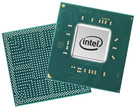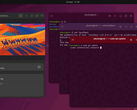Intel has had a reputation for contributing to and benefiting from the open-source community, with contributions ranging from the RISC-V architecture to open-source Linux drivers for its Arc iGPUs and more recent gaming-grade dGPUs. It seems as though much of this will soon come to an end, though, according to Phoronix's reporting on recent comments from the company's Data Center Group executive vice president and general manager, Kevork Kechichian.
According to Kechichian, Intel will seemingly no longer be contributing to open-source projects unless that contribution benefits Intel directly and "gives us a competitive edge against everyone else."
"We need to find a balance where we use [our open-source software] as an advantage to Intel and not let everyone else take it and run with it."
"We are very proud of our open-source contributions. We are going to keep on doing that. However, like I mentioned, I want to make sure that it gives us an edge against everyone else." –Kevork Kechichian (via Phoronix)
Further comments by the Intel executive indicated that Intel may refrain from contributing to open-source projects altogether if it thinks that those contributions could help the competition.
This announcement also follows Intel's July abandonment of Clear Linux, which was a performance-oriented Linux distribution that Intel had been developing for over 10 years. The new stance on open-source contributions runs counter to the generally accepted ethos of open-source, which is something akin to "a rising tide raises all ships," where everyone benefits from open-source contributions and there is a reciprocal relationship.
With Intel's new strategy, it seems as though the company will be trying to use the open-source community as a resource to regain its lost competitive edge instead of contributing in good faith.
Intel's struggles signal the end of open-source collaboration
The shift in Intel's open-source strategy appears to simply be the latest sign of the company's struggling to compete with both AMD and Nvidia, especially given the context of Kechichian's statements when it comes to Intel needing to ensure a competitive edge. Repeated setbacks, delays, and technical issues, both relating to CPU and GPU architecture and Intel's foundry efforts are exemplary of Intel's lack of competitive offerings, and this open-source shift appears to simply be the latest symptom of Intel's failings, even if Panther Lake shows some signs of improvement.
The statements also follow Intel's recent layoffs that apparently affected maintainers of Intel's Linux kernel drivers. Intel's effective abandonment of open-source and the ethos behind open-source is further complicated by how much open-source code is used in many corporate projects, especially when it comes to AI projects.
If you're on the market for a new SFF Linux gaming box, Intel might not be the best bet, so check out the likes of the Asus ROG Flow Z13 2-in-1 laptop — check out our review for more information — with an AMD Ryzen AI Max+ 395 (curr. $2,169.99 on Amazon).



















